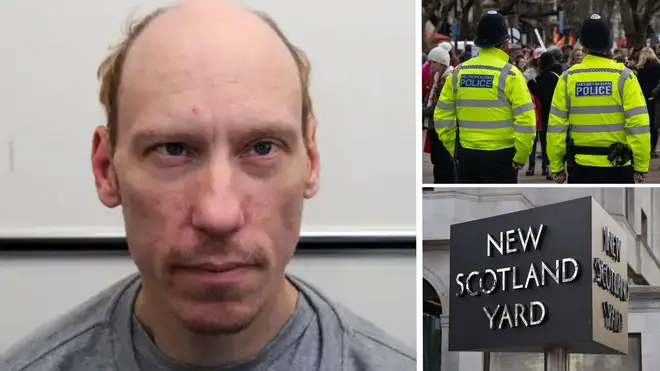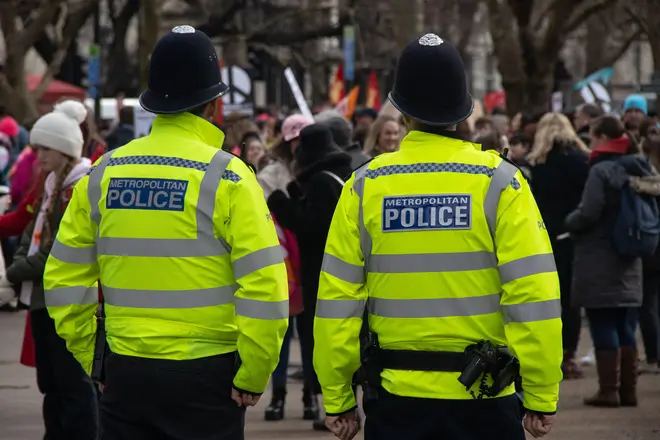
Richard Spurr 1am - 4am
27 April 2023, 22:05 | Updated: 27 April 2023, 22:55

Metropolitan Police officers have admitted they are relying on "luck" when investigating some killings in London.
A damning report from the emergency services watchdog found the risk of the Met failing to identify deaths as killings is "way higher than it should be" almost a decade on from the blunders made in the pursuit of Stephen Port.
A string of errors allowed him to kill four men and drug and sexually assault more than a dozen others.
And it found a lack of "professional curiosity" among officers that could hamper its attempts to stop serial killers or investigate causes of death.
Anthony Walgate, Gabriel Kovari, Daniel Whitworth and Jack Taylor were killed after Port drugged them with GHB and dumped their bodies close to his east London flat in 2014 and 2015.
His Majesty's Inspectorate of Constabulary and Fire & Rescue Services warned officers need to grasp basic standards of investigation if they are working on an unexpected or unexplained death.
Read more: Murder cops hunting wanted fiance of pregnant teacher Marelle Sturrock find his body at reservoir
Otherwise, they risk history "repeating itself", with the force having failed to learn the lessons from the "calamitous litany of failures" in catching Port.
Matt Parr, the inspector of constabulary, said: "The Met has not learned enough from their failings eight years ago, and starkly, what went wrong there could happen again."

He went on: "Had the police conducted a professional and thorough investigation after the first victim, Anthony, was murdered it's entirely possible - likely even - that Gabriel, Daniel and Jack would still have been alive, a dreadful failing.
"It is very difficult to explain how such obvious murders, linked murders, were completely missed at the time."
And in a chilling warning, Mr Parr said officers in the Met have admitted they still rely on "luck to identify links between deaths at a local level".
The Met is typically called to 30 unexpected deaths in a typical day across London - 10,000 a year - while it would usually see two or three homicides a week.
But Mr Parr said the "vast majority" are discounted and not recognised as such, just like at the start of the Port case.
He warned that "it seems to me likely, if not certain, that among the deaths that they do not classify as homicide, that there are some" and that "eight years after Port they're still not tight enough and the risk of a homicide being misidentified and not recognised is way higher than it should be".

HMICFRS looked at 100 investigations into deaths carried out by the Met.
It found evidence of poor training, supervision and handling of property and evidence.
Record keeping was "dreadful", there was a "deluge" of confusing guidance and policies, and intelligence and crime analysis was considered "inadequate".
Some officers did not display much professional curiosity. There were even instances of important discoveries being made at mortuaries because the pockets of the deceased weren't even checked earlier.
A young, inexperienced workforce does not help, nor does the lack of resources, but that did not absolve the force of its responsibility to ensure the basics of investigation are put in place, the watchdog said.
It did not definitively find evidence of homophobia - a suggested reason for why the Port investigation had been so woeful - but the report says there "were and still are homophobic officers" at the force.
It found a "lack of understanding of the lifestyle of those they were investigating".
A total of 20 recommendations have been made.
London mayor Sadiq Khan, said: "Every Londoner - irrespective of sexuality, gender or race - has the right to have their allegations of crime taken seriously by police and the Met must ensure the quality of their initial investigations is of a higher standard.
"Sir Mark Rowley and the new team at the top of the Met have assured me that they are committed to reform and getting the basics right."